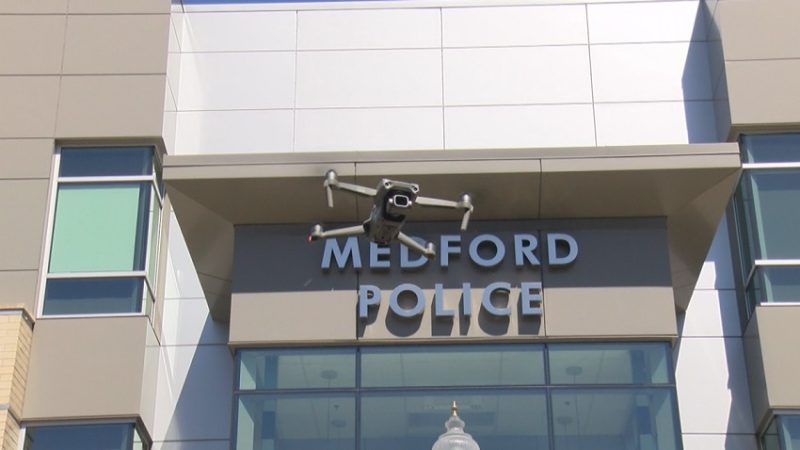Medford, Ore. — A proposed bill in the Oregon Legislature, Senate Bill 238, is reigniting a contentious debate between law enforcement and civil rights groups over the balance between public safety and privacy. The bill, which has already passed through the state Senate, would significantly expand the use of drones by law enforcement in the state, allowing police to deploy drones in response to any 911 call or emergency situation deemed a threat to public safety, without the need for a warrant in many cases.
Under the current law, drones are primarily used by police to assist with active crime scenes, locate missing persons, and conduct searches once a warrant has been obtained. However, SB 238 would broaden this scope, permitting drone use for general emergency response and other undefined public safety threats. Law enforcement officials argue that this expanded use of drone technology will improve the safety of officers and the public, enhancing the effectiveness of emergency response efforts.
Sergeant Quint Oller, a supervisor in the Criminal Investigations Division at the Medford Police Department, emphasized the benefits of drones for officers in the field. “The more information an officer has, the better,” Oller said. “It’s going to make them safer and it’s going to make the community safer as well.” He highlighted previous successes in using drones to locate individuals, such as a missing person with dementia, and expressed optimism about the potential for drones to help catch fleeing criminals.
While law enforcement advocates stress the lifesaving potential of drones, the bill has sparked significant concern among privacy advocates. The American Civil Liberties Union (ACLU) of Oregon argues that the bill could lead to unchecked surveillance and a violation of Oregonians’ privacy rights. Michael Abrams, policy counsel for the ACLU of Oregon, warned that removing the warrant requirement could set a dangerous precedent, giving law enforcement agencies the ability to deploy drones in response to nearly any 911 call.
“We have really serious concerns about how privacy rights will be impacted,” Abrams said. “Think about all of the 911 calls Oregon law enforcement agencies receive on a daily, monthly basis. They’ll be able to send drones as frequently as they want.” Abrams also pointed to a recent lawsuit filed by the ACLU against the Medford Police Department, which alleged that officers had used surveillance drones to spy on local activist groups. This raised fears that SB 238 could lead to increased surveillance of individuals and organizations without proper oversight or safeguards.
Despite these concerns, law enforcement officials in Medford maintain that any expanded use of drones would still comply with existing privacy standards, with internal policies being reviewed to ensure that citizens’ rights are protected. Sergeant Oller acknowledged the importance of protecting privacy but stressed the value of drones in emergency situations. “We want to support the constitution,” Oller said. “We want to protect everybody’s rights, but at the same time, we have a duty to keep people safe.”
The debate over SB 238 highlights the ongoing struggle to balance technological advancements with individual privacy rights. As the bill moves to the state House for further consideration, both law enforcement agencies and civil rights groups are closely watching the legislative process. With technology evolving rapidly, Oregon’s lawmakers face the challenging task of crafting legislation that ensures public safety without undermining the fundamental rights of citizens.
The outcome of this debate could set a precedent for other states considering similar legislation on the use of drones in law enforcement. As the discussion continues, the state’s residents and lawmakers alike are left grappling with how best to navigate the intersection of safety, technology, and privacy.

